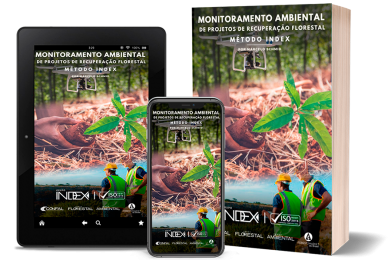FOREST CERTIFICATION
Forest Certification is a voluntary process in which forest companies seek to demonstrate that the management of their forests (management) follows recognized standards of sustainability, through third party verification and certification. The two certification standards most used in the market today are the Forest Stewardship Council (FSC) and the Brazilian Forest Certification Program (CERFLOR).
The company interested in obtaining Forest Certification must adapt its operations to a standard consistent with its objectives, which may be management certification, chain of custody certification, certified wood certification, among others. The adequacy process begins with an internal audit to build a diagnosis and action plan, which will list the activities necessary to adapt the company to the technical, environmental and social aspects required by the chosen standard. Often companies need to develop a series of technical studies necessary for certification, such as environmental programs, historical analysis of land use conversion, social programs, among others.
Although the Forest Certification is sought most of the time by market demand, the companies that obtain the certification realize that it can be used as a tool of great value in the management of internal processes and in the company’s relationship with stakeholders. Therefore, Forest Certification is a standard of environmental, social and corporate governance (Environmental, social and corporate governance – ESG) applied to forest-based companies.
Forest Certification is a voluntary process in which forest companies seek to demonstrate that the management of their forests (management) follows recognized standards of sustainability, through third party verification and certification. The two certification standards most used in the market today are the Forest Stewardship Council (FSC) and the Brazilian Forest Certification Program (CERFLOR).
The company interested in obtaining Forest Certification must adapt its operations to a standard consistent with its objectives, which may be management certification, chain of custody certification, certified wood certification, among others. The adequacy process begins with an internal audit to build a diagnosis and action plan, which will list the activities necessary to adapt the company to the technical, environmental and social aspects required by the chosen standard. Often companies need to develop a series of technical studies necessary for certification, such as environmental programs, historical analysis of land use conversion, social programs, among others.
Although the Forest Certification is sought most of the time by market demand, the companies that obtain the certification realize that it can be used as a tool of great value in the management of internal processes and in the company’s relationship with stakeholders. Therefore, Forest Certification is a standard of environmental, social and corporate governance (Environmental, social and corporate governance – ESG) applied to forest-based companies.

O Monitoramento Ambiental, obrigação imposta para o acompanhamento da evolução dos projetos de restauração florestal, é uma prática que vem sendo cada dia mais exigida das empresas que causam impactos ao meio ambiente. Confira os passos do Método Index para um Monitoramento Ambiental de projetos de Recuperação Florestal de qualidade em nosso novo e-book!
Toda atividade antrópica que transforma, danifica ou destrói as condições originais do meio ambiente possui o ônus da recuperação ambiental. Tal obrigação emana de um dos princípios do direito ambiental brasileiro, o princípio do poluidor-pagador, o qual reconhece que os danos ambientais causados pelas atividades antrópicas devem ser compensados. A compensação visa restabelecer da melhor forma possível as condições originais do meio impactado.
O monitoramento ambiental de projetos de restauração florestal é uma obrigação imposta para o acompanhamento de projetos, e o uso de geotecnologia permite a ampliação do alcance do monitoramento e a geração de um número maior de dados, reduzindo custos e aprimorando as análises.
